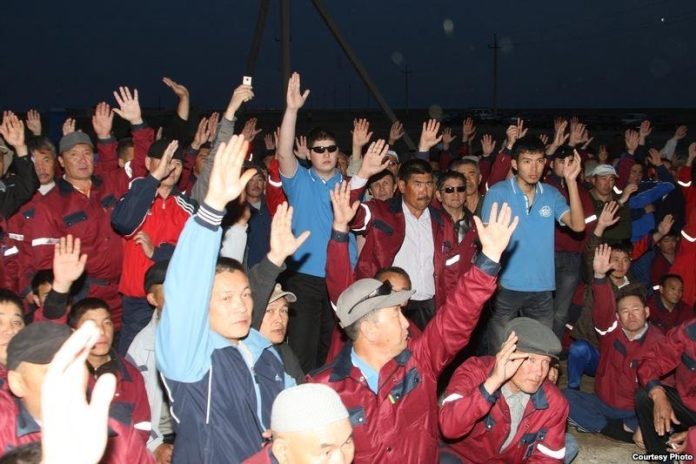
The uncompromising and heavy-handed response to a rising wave of strikes across Kazakstan’s oil sector is doing nothing to promote a settlement, and instead threatens to turn an industry-specific protest into a broader grassroots movement.
Over recent weeks, hundreds of oil workers as well as drivers and ancillary staff at companies in the west of Kazakstan, where the economy is based largely around oil and gas extraction, have joined what began as small-scale strike actions in May.
Andrei Chebotarev, director of the Alternativa Centre for Political Studies, a think-tank, sees a growing politicisation of what began as specific, localised industrial action.
“Initially, the demands the protesters were making were purely social and economic, concerning their relations with management at their various companies,” he said.
Chebotarev said it was the Kazak authorities who heightened tensions by failing to encourage negotiated settlements rather than confrontation, and by allowing the police to get drawn into pressuring union activists.
Meanwhile, Kazakstan’s opposition parties took up the strikers’ cause, adding a further political dimension to the dispute.
Utkin agreed that the authorities had show themselves unable to play the role of neutral third party, and had thus exacerbated the situation.
“The authorities have backed the employer, using heavy-handed tactics against the workers, and trashing their reputations in the state media,” he said. “That isn’t right – the authorities should take a neutral stance and seek a compromise, lawful outcome.”
In this kind of environment, Chebotarev says, if striking groups act in unison and remain steadfast, they have a chance of getting their demands met.
“In any case, the strike movement in Kazakstan is clearly on the rise, and it could force the country’s leadership to rapidly take the measures needed to prevent social tensions deteriorating even further,” he said.
«IWPR», 24.07.2011 г.
Almaz Rysaliev




